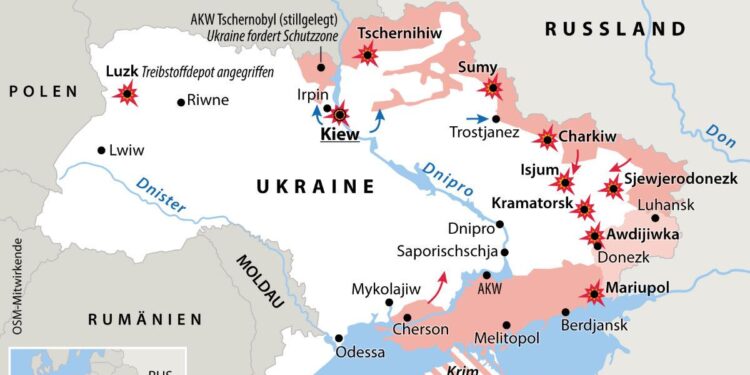The ongoing conflict in Ukraine has led to the heartbreaking abduction of countless children, prompting urgent efforts to locate and reunite them with their families. At the forefront of this mission is the Humanitarian Research Lab at Yale School of Medicine, a dedicated team using cutting-edge research and technology to track and identify abducted Ukrainian children. As the crisis continues to unfold, their work has become critical in addressing one of the most devastating consequences of the war. This article explores the lab’s innovative approach and highlights how support can help sustain their vital efforts.
Humanitarian Research Lab at Yale Unveils New Methods to Track Ukraine’s Abducted Children
The team at Yale’s Humanitarian Research Lab has pioneered innovative techniques that combine satellite imagery analysis, open-source intelligence, and advanced data modeling to identify and document cases of children abducted amid the conflict in Ukraine. Their approach leverages cutting-edge technology alongside collaborative networks of local experts and international organizations, enabling the lab to provide timely evidence to aid humanitarian agencies and legal institutions. These methods not only improve the accuracy of tracking but also bolster global efforts to reunite families and hold perpetrators accountable.
Key components of the lab’s approach include:
- Real-time satellite surveillance for monitoring displacement patterns
- Machine learning algorithms to detect irregular movements and suspicious activities
- Cross-referencing multiple open-source data streams for validation
- Partnering with NGOs and government bodies to share verified information
| Technique | Purpose | Impact |
|---|---|---|
| Satellite Imagery | Visual tracking of movement patterns | Early identification of abduction events |
| Machine Learning | Pattern recognition in large datasets | Increased detection accuracy |
| Open-Source Data | Supplemental verification | Improved evidence reliability |
Challenges and Breakthroughs in Identifying Missing Ukrainian Minors Amid Conflict
Amidst the chaos of ongoing conflict, tracking the whereabouts of missing Ukrainian minors has become a mission fraught with unprecedented obstacles. Disrupted communication networks, mass displacement, and restricted access to conflict zones significantly hinder efforts to verify identities and trace movements. Moreover, the use of false documentation and language barriers further complicate identification. These factors contribute to immense challenges for humanitarian groups and researchers attempting to piece together reliable information in real time.
Key difficulties faced include:
- Fragmented and incomplete data sources across multiple regions
- Limited cooperation from hostile territories and authorities
- High risk of emotional trauma to witnesses and survivors during information gathering
- Rapid changes in on-the-ground conditions altering the status of missing children
Despite these hurdles, remarkable breakthroughs have emerged thanks to innovative approaches and cross-disciplinary collaboration. The integration of satellite imagery analysis, AI-driven facial recognition software, and crowdsourced eyewitness accounts has empowered teams to uncover leads that were once deemed impossible to track. Additionally, partnerships between local NGOs and international organizations have improved data sharing standards, creating a more cohesive framework for action.
| Breakthrough | Impact | |
|---|---|---|
| AI Facial Recognition | Accelerated identification from photo databases | |
| Satellite Data Cross-Referencing | Mapped migration paths and detention centers | |
| Community Reporting Platforms | Increased timely eyewitness information |
| Priority Area | Proposed Action | Expected Outcome |
|---|---|---|
| Funding | Increase government and private sector grants | Expanded operational capacity |
| International Collaboration | Create interoperable data-sharing platforms | Faster victim identification and reunification |
| Training | Implement joint workshops and seminars | Enhanced investigative expertise |
Future Outlook
As the conflict in Ukraine continues to unfold, the efforts of the Humanitarian Research Lab at Yale School of Medicine remain vital in the search for abducted children torn from their homes. Their work not only sheds light on the human cost of war but also offers hope to countless families desperate for answers. Supporting this initiative is crucial to ensuring that these children are found and reunited with their loved ones. In a time of uncertainty, the lab’s commitment underscores the enduring power of research and humanitarian aid to make a tangible difference amid crisis.
















